
Asau: The Hidden Gem of Samoa
Nestled on the northwestern coast of Savai'i, Asau is a tranquil escape from the hustle and bustle of modern life. This serene village is renowned for its natural beauty, offering lush landscapes, pristine beaches, and crystal-clear waters. Asau is a perfect destination for those seeking peace and a connection with nature. The village is surrounded by dense tropical forests, making it a haven for hikers and nature enthusiasts. The nearby Asau Bay is ideal for swimming, snorkeling, and paddling. The calm waters are home to vibrant marine life, providing an underwater paradise for divers. Asau's rich cultural history adds to its charm. The village is dotted with traditional Samoan fale (houses) and is known for its warm hospitality. Visitors can immerse themselves in local traditions, sample delicious Samoan cuisine, and enjoy the rhythmic sounds of traditional music and dance. Whether you're exploring its natural wonders or engaging with its culture, Asau offers an unforgettable experience.
Local tips in Asau
- Pack light and breathable clothing; the weather is warm and humid year-round.
- Bring snorkeling gear to explore the vibrant marine life in Asau Bay.
- Try to visit during a local festival to experience Samoan culture at its best.
- Rent a car or bike to explore the surrounding areas and hidden spots.
- Respect local customs and traditions, especially when visiting villages and sacred sites.
Asau: The Hidden Gem of Samoa
Nestled on the northwestern coast of Savai'i, Asau is a tranquil escape from the hustle and bustle of modern life. This serene village is renowned for its natural beauty, offering lush landscapes, pristine beaches, and crystal-clear waters. Asau is a perfect destination for those seeking peace and a connection with nature. The village is surrounded by dense tropical forests, making it a haven for hikers and nature enthusiasts. The nearby Asau Bay is ideal for swimming, snorkeling, and paddling. The calm waters are home to vibrant marine life, providing an underwater paradise for divers. Asau's rich cultural history adds to its charm. The village is dotted with traditional Samoan fale (houses) and is known for its warm hospitality. Visitors can immerse themselves in local traditions, sample delicious Samoan cuisine, and enjoy the rhythmic sounds of traditional music and dance. Whether you're exploring its natural wonders or engaging with its culture, Asau offers an unforgettable experience.
When is the best time to go to Asau?
Iconic landmarks you can’t miss
To-Sua Ocean Trench
Discover the stunning To-Sua Ocean Trench in Samoa for an unforgettable swimming experience in a breathtaking natural setting.
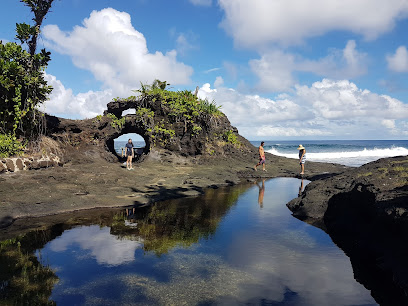
Saletoga Sands Resort & Spa
Discover the idyllic Saletoga Sands Resort & Spa, a luxurious escape on Samoa's South Coast, blending relaxation, adventure, and culinary delights.

Piula Cave Pool
Experience the breathtaking beauty of Piula Cave Pool in Faleapuna, a captivating natural attraction perfect for relaxation and adventure amidst lush landscapes.
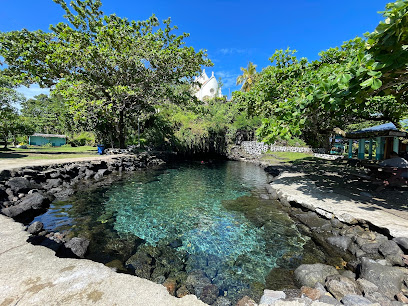
Sheraton Samoa Aggie Grey's Hotel & Bungalows
Discover luxury and culture at Sheraton Samoa Aggie Grey's Hotel & Bungalows, your perfect getaway in the heart of Upolu's tropical paradise.
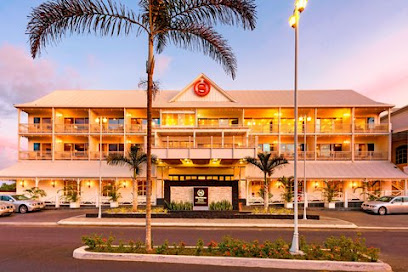
Palolo Deep Marine Reserve
Discover the vibrant marine life and stunning coral reefs at Palolo Deep Marine Reserve, an unforgettable snorkeling paradise in Samoa.
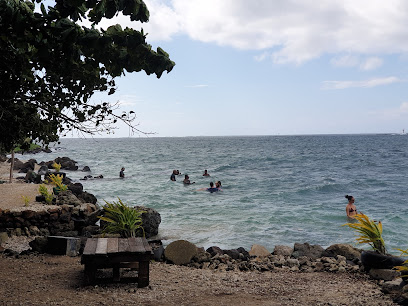
Samoa Cultural Village
Experience the vibrant traditions of Samoa at the Cultural Village, where culture, cuisine, and community converge for an unforgettable adventure.
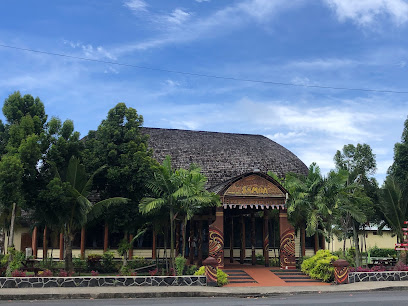
Giant Clam Sanctuary
Discover the Giant Clam Sanctuary in Savaia: a marine haven for giant clams and a journey into the heart of ocean conservation.
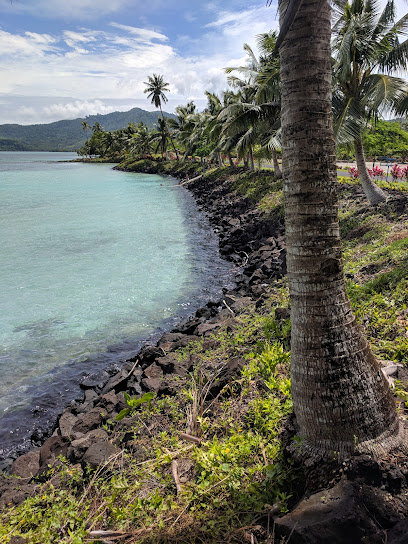
Robert Louis Stevenson Museum
Explore the enchanting world of Robert Louis Stevenson at his dedicated museum in Apia, Samoa, where literature meets breathtaking natural beauty.
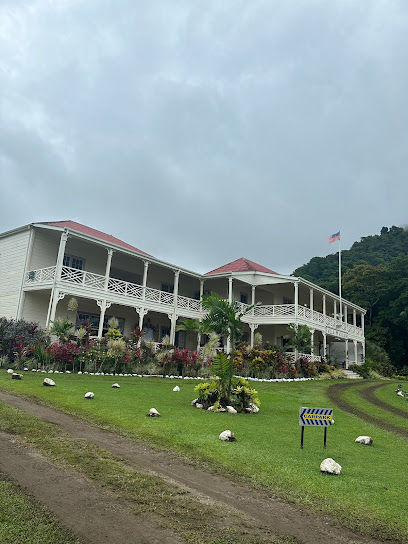
Papaseea Sliding Rocks
Discover the exhilarating Papaseea Sliding Rocks in Samoa, where adventure meets nature in a breathtaking tropical paradise.
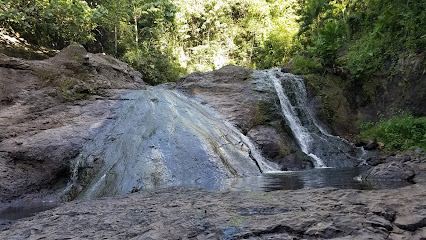
To Sua Ocean Trench
Experience the stunning beauty of To Sua Ocean Trench, a breathtaking natural wonder in Samoa that offers a unique swimming adventure amidst lush tropical landscapes.
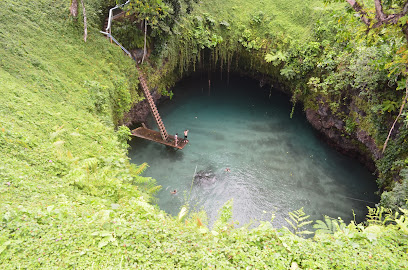
Afu Aau Waterfalls
Experience the breathtaking beauty of Afu Aau Waterfalls in Vailoa, a perfect blend of adventure and tranquility amidst nature's wonders.
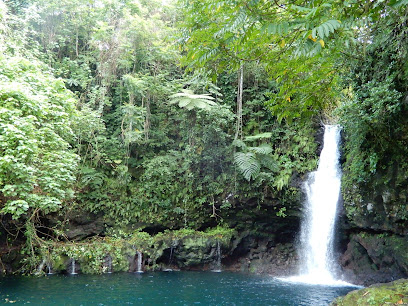
Alofaaga Blowholes
Experience the breathtaking power of nature at the Alofaaga Blowholes, where the ocean meets volcanic rock in stunning displays of geysers and beauty.
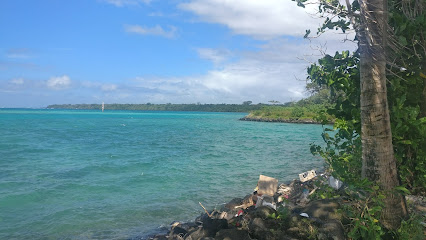
Immaculate Conception Cathedral
Explore the stunning Immaculate Conception Cathedral in Apia, a true gem of Samoan architecture and culture, offering tranquility and beauty.
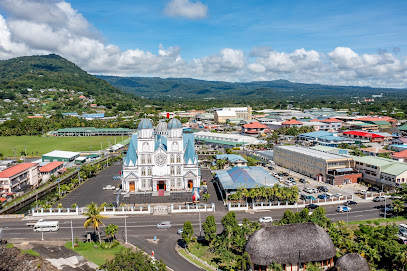
Savaii Lagoon Resort
Experience tranquility and adventure at Savaii Lagoon Resort, your serene getaway in the heart of Samoa's natural beauty.
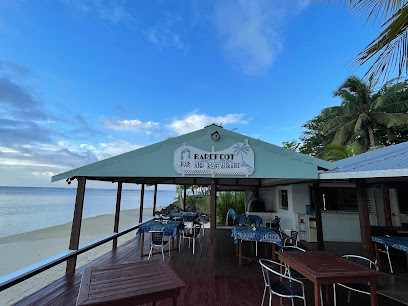
Swimming With Turtles
Experience the thrill of swimming with turtles in the pristine waters of Sato'alepai, an unforgettable adventure for nature lovers and tourists alike.
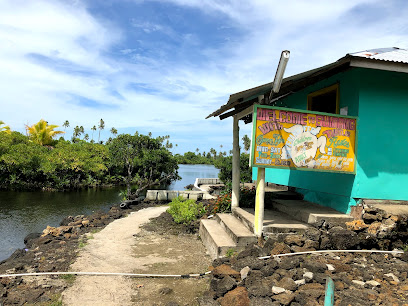
Unmissable attractions to see
Piula Cave Pool
Experience the tranquil beauty of Piula Cave Pool, a hidden gem in Faleapuna offering crystal-clear waters and lush surroundings for ultimate relaxation.
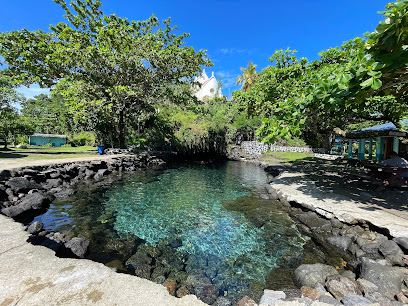
Giant Clam Sanctuary
Discover the breathtaking beauty of the Giant Clam Sanctuary in Savaia, a paradise for nature lovers and marine enthusiasts alike.
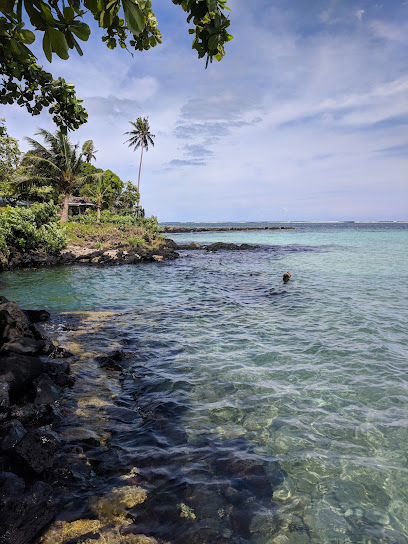
Afu Aau Waterfalls
Explore the breathtaking Afu Aau Waterfalls in Vailoa, Samoa, where nature's beauty and serenity await you in a tropical paradise.
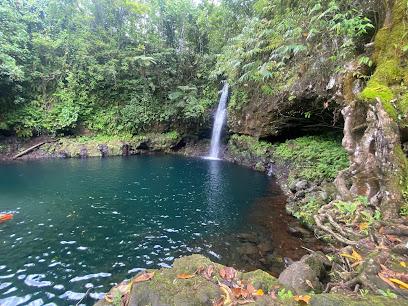
Papaseea Sliding Rocks
Discover the thrill of sliding down natural rock formations into crystal-clear waters at Papaseea Sliding Rocks, Samoa's unique adventure destination.
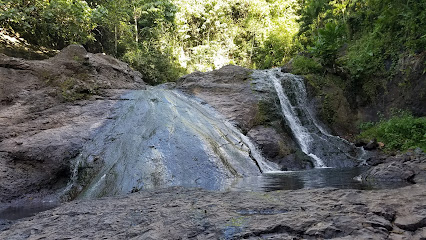
Alofaaga Blowholes
Discover the breathtaking Alofaaga Blowholes in Taga Salega, where nature's power erupts in spectacular water jets against the stunning Samoan coastline.
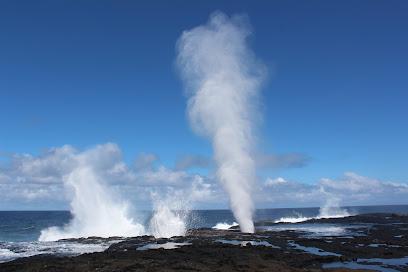
Togitogiga Waterfall
Experience the breathtaking beauty of Togitogiga Waterfall in Samoa, where adventure and tranquility meet in a stunning natural setting.
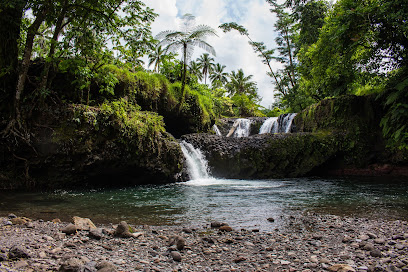
Sopo'aga Falls Viewpoint
Experience the breathtaking beauty of Sopo'aga Falls Viewpoint, where cascading waters and lush landscapes create a perfect escape in Samoa.
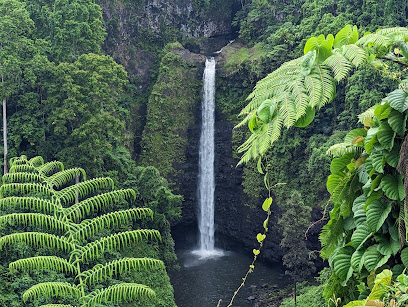
Papapapaitai Falls
Explore the stunning Papapapaitai Falls in Samoa, a natural wonder with breathtaking views and serene surroundings perfect for nature lovers and adventurers alike.
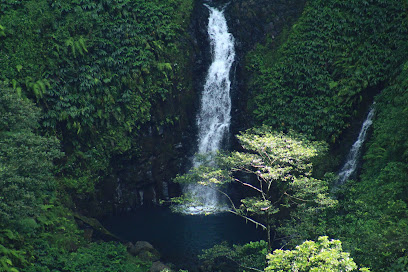
Baha'i House of Worship Samoa
Discover spiritual serenity and breathtaking architecture at the Baha'i House of Worship in Samoa, a tranquil haven for reflection and unity.
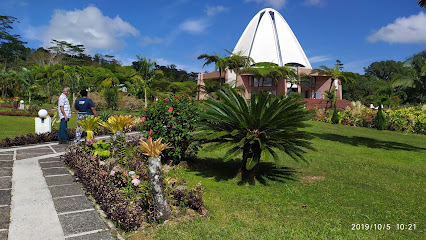
Fuipisia Waterfall
Experience the breathtaking beauty of Fuipisia Waterfall, a hidden gem in Samoa, surrounded by lush landscapes and tranquil vibes.
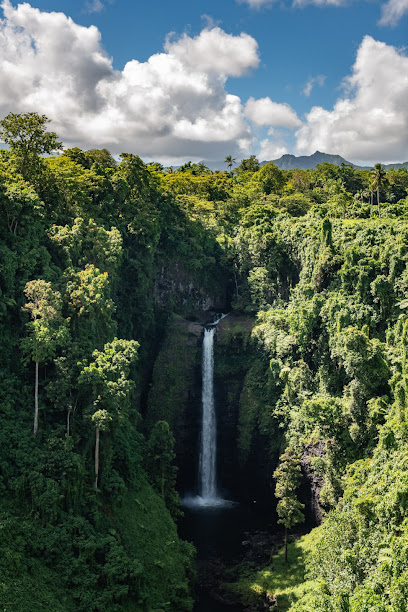
Mu Pagoa Waterfall
Experience the breathtaking beauty of Mu Pagoa Waterfall in Puleia, a serene oasis surrounded by lush nature and vibrant Samoan culture.
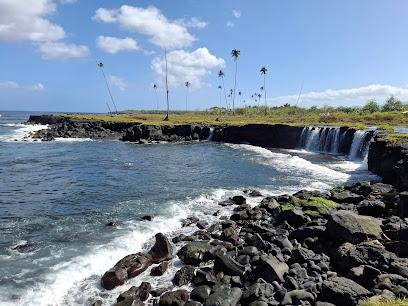
Fiafia Park
Experience the serene beauty of Fiafia Park in Siusega, a tranquil escape showcasing Samoa's lush landscape and rich cultural heritage.
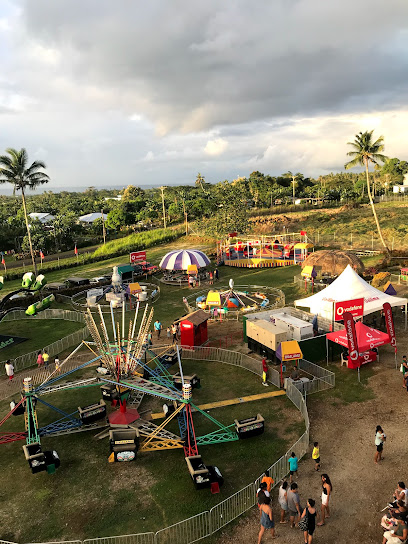
Apia Harbor
Experience the serene beauty of Apia Harbor, a captivating destination perfect for relaxation, local culture, and stunning ocean views in Samoa.
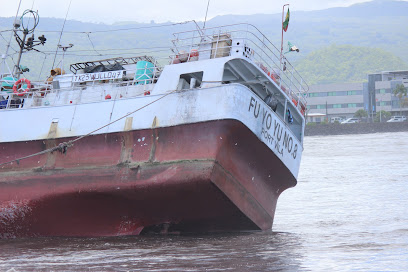
Pou Onesemo
Experience the tranquility and natural beauty of Pou Onesemo Park in Salua, Samoa - a perfect retreat for nature lovers and adventure seekers.

Leoina Snorkelling & Tours
Experience the magic of the South Pacific at Leoina Snorkelling & Tours, where vibrant marine life and stunning coral reefs await your exploration.

Essential places to dine
Paddles Restaurant
Experience authentic Samoan cuisine at Paddles Restaurant in Apia—where every meal tells a story of culture and flavor.
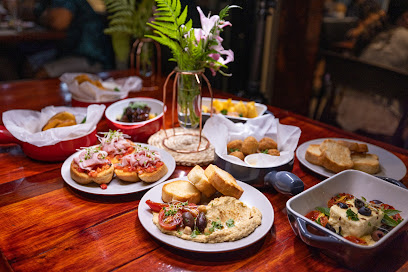
Scalini's Restaurant
Discover authentic Samoan cuisine at Scalini's Restaurant in Apia, where local flavors meet international dining experiences.
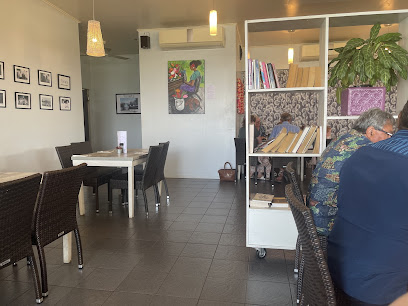
Sails Restaurant & Bar
Discover delightful Italian cuisine at Sails Restaurant & Bar in Apia, where warm hospitality meets stunning views and exquisite flavors.
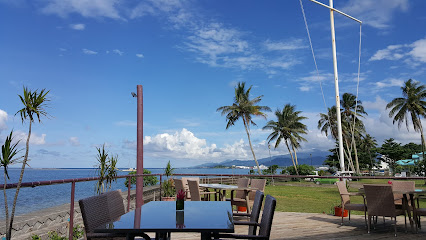
Pinati Restaurant
Experience authentic Samoan cuisine at Pinati Restaurant in Apia—where every dish tells a story.
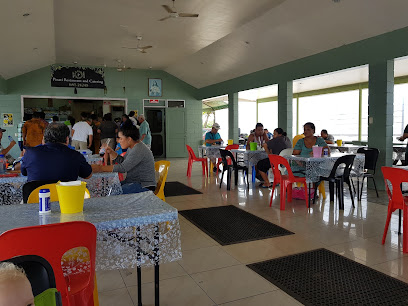
Bistro Tatau Restaurant
Experience authentic Samoan cuisine at Bistro Tatau - where fresh ingredients meet exquisite flavors in the heart of Apia.
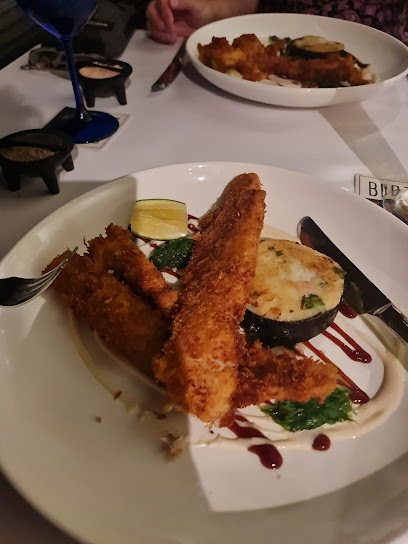
Amanaki Restaurant
Discover authentic Samoan flavors at Amanaki Restaurant in Apia - where culinary excellence meets warm island hospitality.
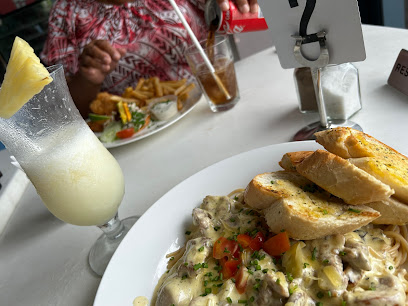
Island Grill - Steak & Seafood
Experience the best steak and seafood in Apia at Island Grill – where every meal is a celebration of local flavors.
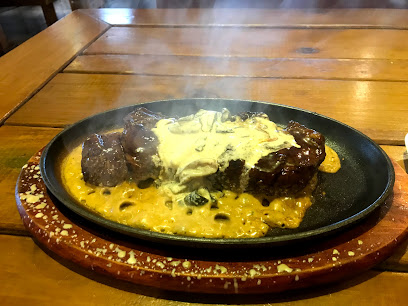
Roko's Restaurant
Discover authentic Samoan cuisine at Roko's Restaurant in Apia – a culinary gem blending tradition with taste.
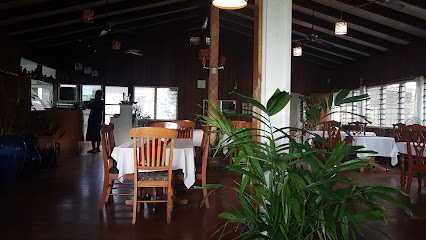
Taumeasina Restaurant & Bar
Experience authentic Samoan cuisine with stunning ocean views at Taumeasina Restaurant & Bar in Apia - a culinary gem for every traveler.
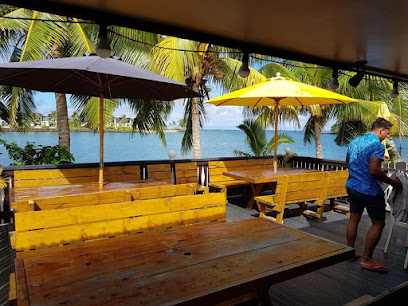
Tandoori Indian Restaurant
Experience authentic Indian flavors at Tandoori Indian Restaurant in Apia, Samoa - a culinary adventure awaits you!
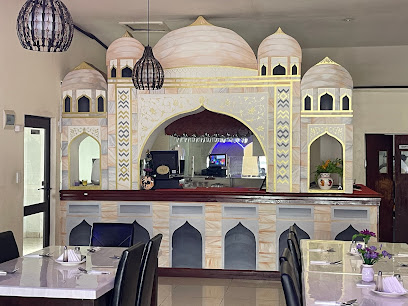
Sunrise Restaurant
Discover authentic Chinese flavors at Sunrise Restaurant in Apia, where local ingredients meet traditional recipes for an unforgettable dining experience.
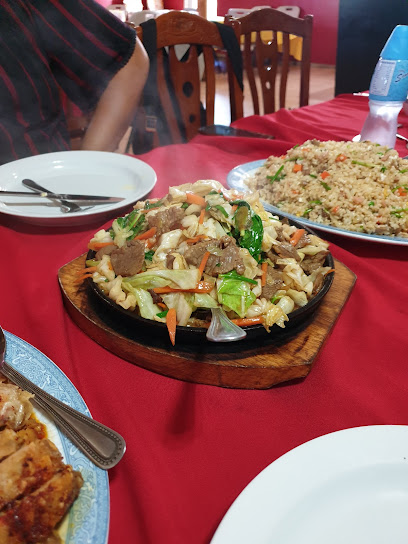
Savai'i Harbourside Café & Pizza Bar
Discover delectable pizzas and local dishes at Savai'i Harbourside Café & Pizza Bar, where stunning views meet exceptional flavors.
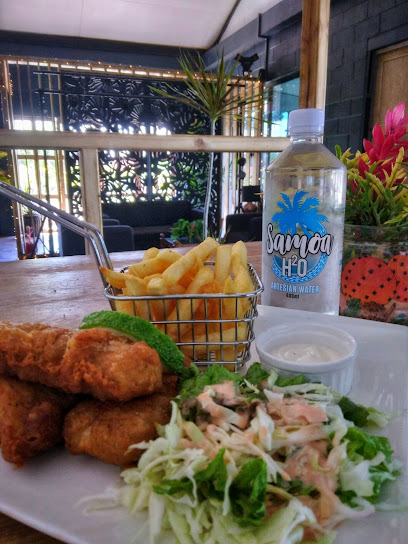
Bella's Kitchen
Experience authentic Samoan cuisine at Bella's Kitchen in Apia - where every dish tells a story of culture and tradition.
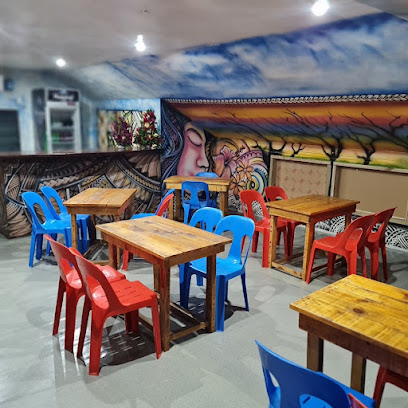
Treasure Garden Restaurant
Discover the authentic taste of China at Treasure Garden Restaurant in Apia - where flavor meets hospitality in a tropical setting.
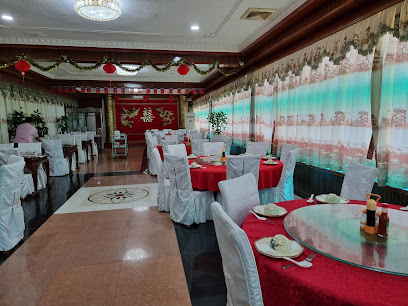
Barefoot Bar and Restaurant
Experience coastal dining at its finest at Barefoot Bar and Restaurant in Fagamalo – where breathtaking views meet mouthwatering cuisine.
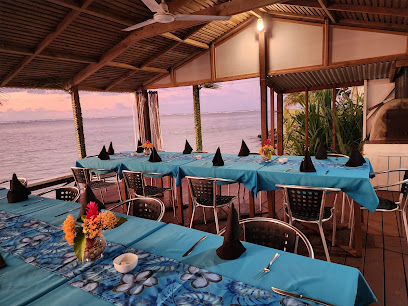
Markets, malls and hidden boutiques
Pacific Jewell Gift Shop & Garden Café
Explore unique gifts and savor local flavors at the Pacific Jewell Gift Shop & Garden Café in Apia, a treasure trove for tourists and locals alike.
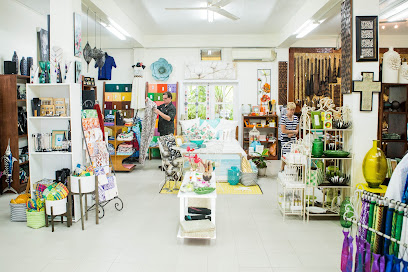
SSAB Megastore
Explore the vibrant SSAB Megastore in Apia for an exciting shopping experience with a blend of local and international products.
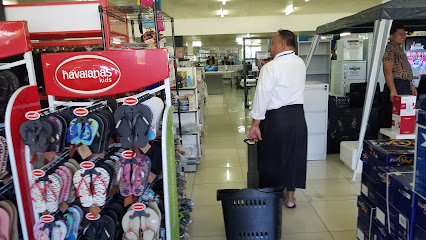
Janet's Samoa
Explore Janet's Samoa: a boutique gift shop and cultural center in Apia offering unique local crafts and a glimpse into Samoan heritage.
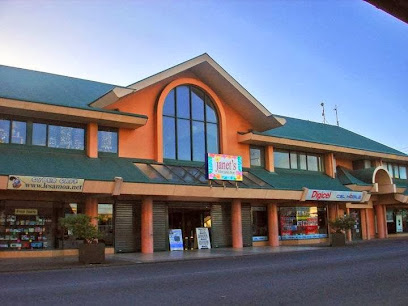
Taefu Taulagi Matafeo Store
Experience the flavors of Asaga at Taefu Taulagi Matafeo Store, where sweet treats and local culture come together in a cozy atmosphere.
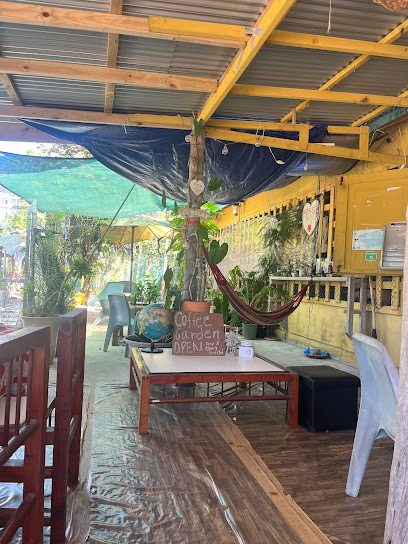
Horizon Surf Samoa
Explore the essence of island life at Horizon Surf Samoa, your premier destination for surf and casual wear in Apia.
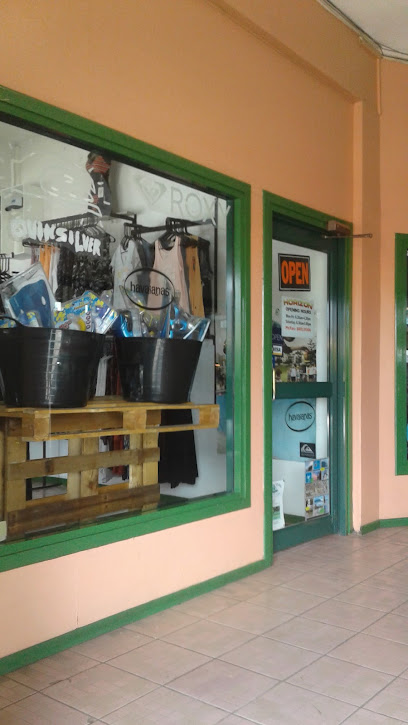
Plantation House
Explore the vibrant fashion scene at Plantation House, Apia's premier clothing store, offering unique and colorful apparel for every style.
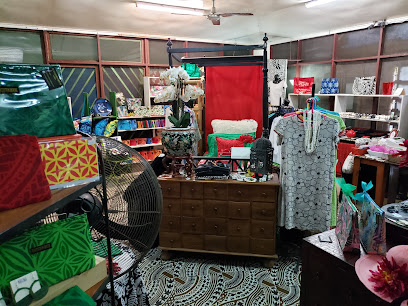
Kirahitto's Convenience Store/ Chicken & Chips
Savor the taste of Iva at Kirahitto's Convenience Store, where delicious chicken and chips meet delightful baked goods in a cozy atmosphere.
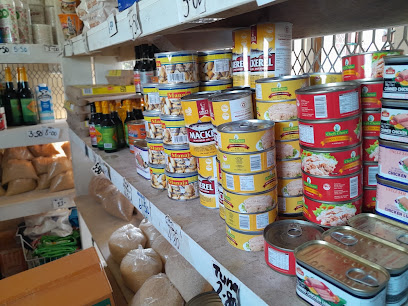
Local Village Shop
Explore the Local Village Shop for unique treasures, local crafts, and a taste of island life in a charming general store atmosphere.
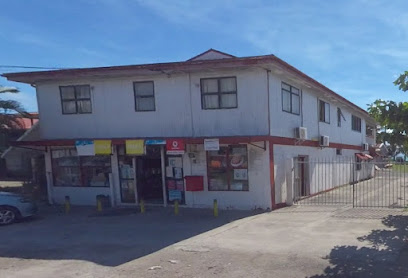
Le-Ata Samoa
Explore Le-Ata Samoa in Fagalii Uta for an authentic shopping experience featuring exquisite local handicrafts and treasures.
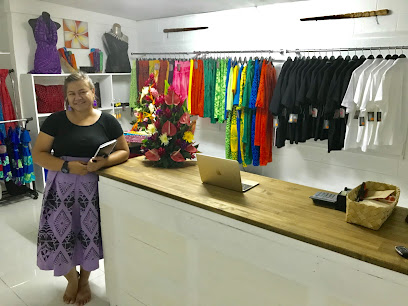
Janet's
Explore the vibrant culture of Samoa at Janet's Gift Shop, where unique local crafts and heartfelt souvenirs await every traveler.
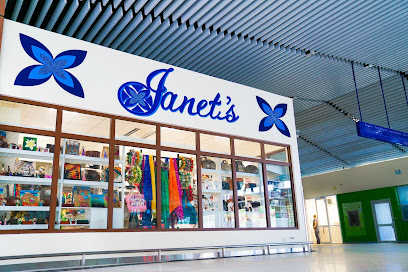
Sola's Shop (Basics)
Experience the heart of Samoa at Sola's Shop, where local culture and authentic crafts come together in the charming village of Gagaifoolevao.
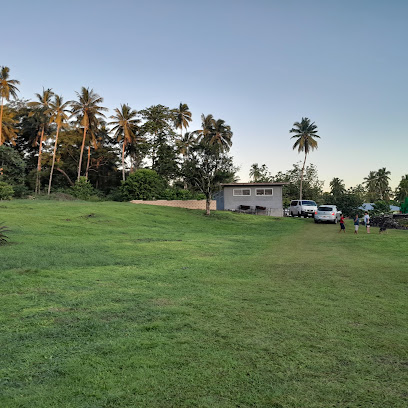
Tofilau Tauvaga & Silia's Store
Discover the local charm of Tofilau Tauvaga & Silia's Store in Iva, your go-to convenience store for snacks, drinks, and a taste of Samoan hospitality.
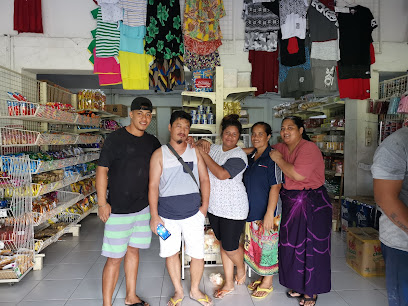
Ross Samoa
Discover unique second-hand treasures and exquisite linens at Ross Samoa - a local gem in Apia that reflects the vibrant culture of Samoa.
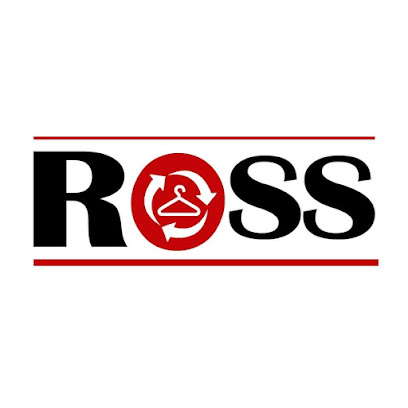
CK Mart
Explore local flavors and fresh produce at CK Mart, Apia's premier grocery store, perfect for tourists seeking to taste Samoan culture.

Faletaulupe Malupo Taufao’s Shop
Explore Faletaulupe Malupo Taufao’s Shop in Vailoa for authentic Samoan crafts, fresh produce, and a warm cultural experience.
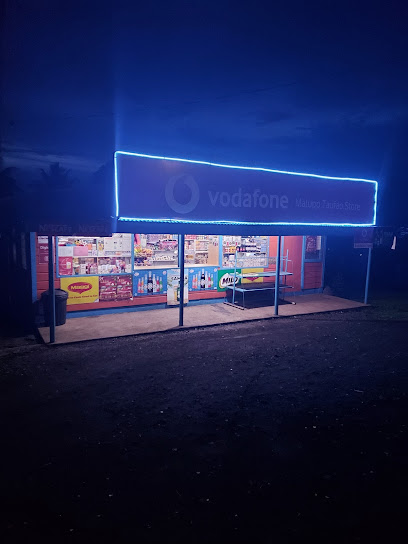
Essential bars & hidden hideouts
The Edge Marina, Samoa
Discover the vibrant blend of local culture, stunning views, and delicious cuisine at The Edge Marina in Samoa.
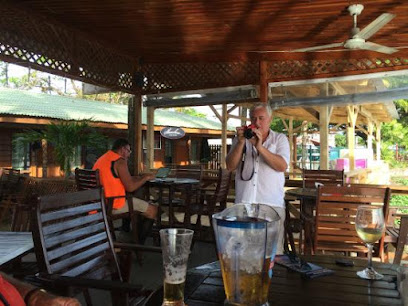
Sails Restaurant & Bar
Experience the best of Samoan cuisine with stunning ocean views at Sails Restaurant & Bar in Apia.
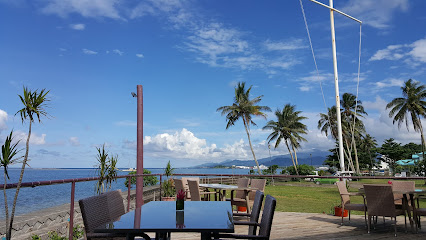
Taumeasina Restaurant & Bar
Experience the taste of Samoa with breathtaking views at Taumeasina Restaurant & Bar, a top dining destination in Apia.
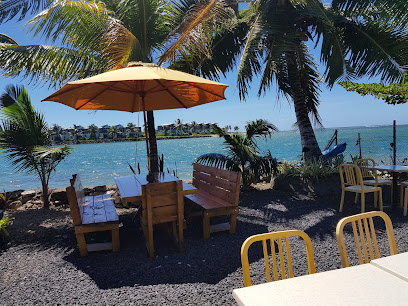
Savai'i Harbourside Café & Pizza Bar
Discover a culinary paradise at Savai'i Harbourside Café & Pizza Bar, where delicious pizzas meet stunning harbor views and a welcoming atmosphere.
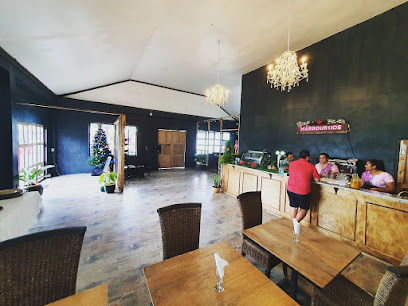
Cocktails On the Rocks
Discover the vibrant atmosphere and tropical flavors at Cocktails on the Rocks, a premier bar experience in Apia, Samoa.
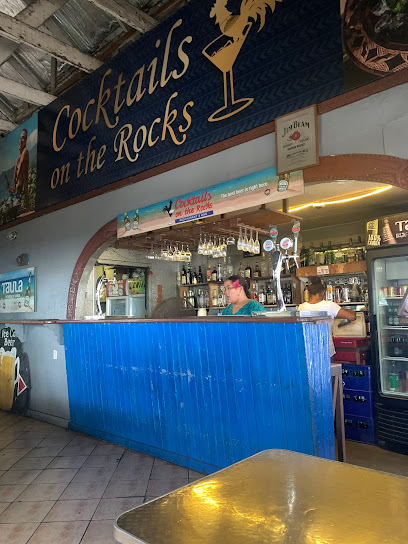
Barefoot Bar and Restaurant
Experience the flavors of Fagamalo at Barefoot Bar and Restaurant, a coastal dining destination with stunning ocean views and fresh local cuisine.
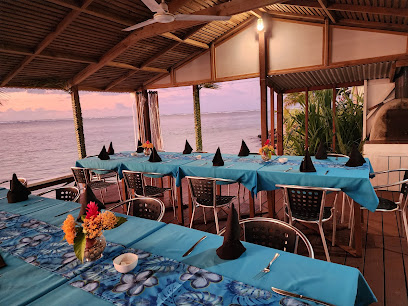
JP Bar
Discover the vibrant nightlife of Apia at JP Bar, where refreshing drinks and great music create the perfect atmosphere for relaxation and fun!
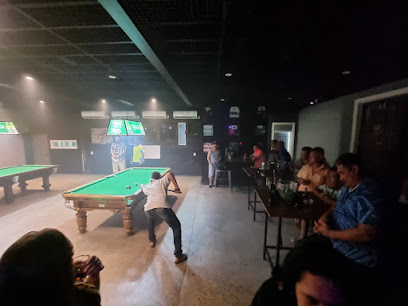
Y-Not Lounge Bar Samoa
Discover the lively spirit of Y-Not Lounge Bar Samoa, where tropical cocktails and vibrant nightlife await every traveler in Apia.

Kevin sisson
Discover the vibrant nightlife at Kevin Sisson, a cozy bar in Salua offering unique drinks and a friendly atmosphere for travelers and locals alike.

Turtle Lounge Saleimoa, Samoa
Discover authentic Samoan flavors at Turtle Lounge in Saleimoa, where every meal is a celebration of local cuisine and hospitality.
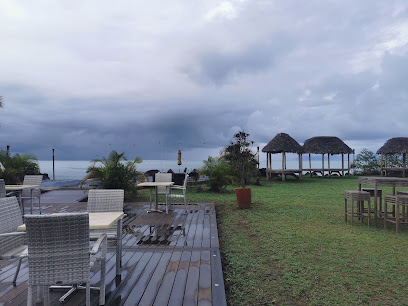
Solent Bar
Discover the lively atmosphere and tropical cocktails at Solent Bar in Mulifanua, a perfect retreat for every traveler in Samoa.

The Pool Bar
Discover The Pool Bar in Mulifanua, Samoa, where tropical cocktails and serene ocean views create the ultimate relaxation retreat.

Tuxx Bar Samoa
Discover the vibrant nightlife at Tuxx Bar Samoa in Apia, a perfect spot for drinks and socializing in a lively atmosphere.

Koka Bar
Experience the vibrant nightlife of Apia at Koka Bar, where unique cocktails and live music blend for an unforgettable evening.
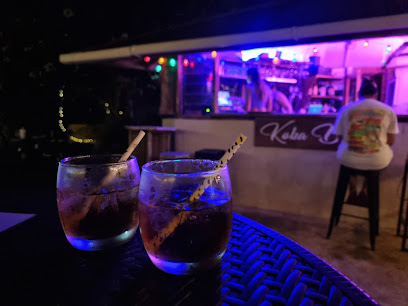
Local Phrases
-
- HelloTalofa
[Tah-loh-fah] - GoodbyeFa
[Fah] - YesIoe
[Ee-oh-eh] - NoLeai
[Lei-eye] - Please/You're welcomeFa'amalie
[Fah-ah-mah-lee-eh] - Thank youFa'afetai
[Fah-ah-feh-tie] - Excuse me/SorryTulou
[Too-loh-oo] - How are you?O a mai oe?
[Oh-ah-my-oh-eh] - Fine. And you?Lelei. O a oe?
[Leh-lei. Oh-ah-weh] - Do you speak English?O lea e faia le fa'asamoa?
[Oh-leh-ah-eh-fah-ee-ah-leh-fah-ah-sah-mo-ah] - I don't understandLe mafai ona ou te le mafai ona malamalama
[Lei-mah-fie-oh-nah-oh-teh-lei-mah-fie-oh-nah-mah-lah-mah-lahmah]
- HelloTalofa
-
- I'd like to see the menu, pleaseFa'amalie, ou te fia vaega i le menu
[Fah-ah-mah-lee, oh-oo-teh-fee-ah-vai-gah-ee-leh-meh-noo] - I don't eat meatO lea ou te le ai nisi
[Oh-leh-ah-oh-teh-leh-ai-nee-see] - Cheers!Manuia!
[Mah-noo-ee-ah] - I would like to pay, pleaseFa'amalie, ou te fia tu'uina
[Fah-ah-mah-lee, oh-oo-teh-fee-ah-too-oo-ee-nah]
- I'd like to see the menu, pleaseFa'amalie, ou te fia vaega i le menu
-
- Help!Tulou!
[Too-loh-oo] - Go away!Alu!
[Ah-loo] - Call the Police!Vili leoleo!
[Vee-lee-leh-oh-leh-oh] - Call a doctor!Vili foma'i!
[Vee-lee-foh-mah-ee] - I'm lostUa ou iloa
[Oo-ah-oh-oo-ee-loh-ah] - I'm illOu te mate
[Oh-oo-teh-mah-teh]
- Help!Tulou!
-
- I'd like to buy...Ou te fia fa'atau...
[Oh-oo-teh-fee-ah-fah-ah-tow] - I'm just lookingOu te tatala
[Oh-oo-teh-tah-tah-lah] - How much is it?E leai se uiga e leai?
[Eh-lei-say-oo-ee-ngah-eh-lei] - That's too expensiveE leai se mea e lelei
[Eh-lei-say-meh-ah-eh-leh-lei] - Can you lower the price?O lea ou te fa'atau fa'amalie?
[Oh-leh-ah-oh-teh-fah-ah-tow-fah-ah-mah-lee]
- I'd like to buy...Ou te fia fa'atau...
-
- What time is it?O i taimi ia?
[Oh-ee-tie-mee-ee-ah] - It's one o'clockE tasi i le taimi
[Eh-tah-see-ee-leh-tie-mee] - Half past (10)I le avea (10)
[Ee-leh-ah-veh-ah-ten] - MorningAo
[Ah-oh] - AfternoonAfiafi
[Ah-fee-ah-fee] - EveningIli
[Ee-lee] - YesterdayAnanafi
[Ah-nah-nah-fee] - TodayAso nei
[Ah-soh-neh-ee] - TomorrowAso taeao
[Ah-soh-tah-eh-ah-oh] - 1Tasi
[Tah-see] - 2Lua
[Loo-ah] - 3Tolu
[Toe-loo] - 4Fa
[Fah] - 5Lima
[Lee-mah] - 6Ono
[Oh-no] - 7Fitu
[Fee-too] - 8Valu
[Vah-loo] - 9Iva
[Ee-vah] - 10Sefulu
[Sey-foo-loo]
- What time is it?O i taimi ia?
-
- Where's a/the...?O fea le...
[Oh-feh-ah-leh] - What's the address?O le fa'ailoa?
[Oh-leh-fah-ah-ee-loh-ah] - Can you show me (on the map)?O lea ou te fa'ailoa?
[Oh-leh-ah-oh-teh-fah-ah-ee-loh-ah] - When's the next (bus)?O lea lea (autalavou)?
[Oh-leh-ah-leh-ah-ou-tah-lah-voh-ou] - A ticket (to ....)Tiketi (i ...)
[Tee-keh-tee-ee]
- Where's a/the...?O fea le...
History of Asau
-
Asau, located on the northwest coast of Savai'i, the largest island in Samoa, has a deep-rooted history that dates back to the early Polynesian settlers. These settlers, known for their seafaring skills, arrived in Asau around 1000 BC. They brought with them their rich traditions, oral histories, and intricate tattooing practices, which have been passed down through generations and remain a significant part of Asau's cultural identity.
-
The arrival of European explorers in the 18th century marked a significant turning point in Asau's history. Dutch explorer Jacob Roggeveen was one of the first Europeans to sight Samoa in 1722, followed by French explorer Louis-Antoine de Bougainville in 1768. These early contacts led to increased European interest in Samoa, including Asau, which subsequently became a point of interest for traders and missionaries.
-
In the 1830s, Christian missionaries from the London Missionary Society began arriving in Samoa, including Asau. They introduced Christianity, which significantly altered the cultural landscape of the region. Traditional religious practices were gradually replaced by Christian worship, and this period saw the construction of the first churches in Asau. The influence of Christianity is still evident today in the strong religious adherence among the local population.
-
Asau, like the rest of Samoa, experienced the impacts of colonialism. In 1899, the Tripartite Convention divided Samoa between Germany and the United States, with Asau falling under German control. This period saw the establishment of plantations and the exploitation of natural resources. Following World War I, control of Western Samoa, including Asau, was transferred to New Zealand under a League of Nations mandate, further shaping the region's political and economic landscape.
-
Western Samoa gained independence from New Zealand in 1962, becoming the first Pacific island nation to do so. This newfound independence brought significant changes to Asau, including infrastructural developments and increased local governance. The construction of roads and the establishment of essential services have transformed Asau into a thriving community. Today, Asau is known for its vibrant culture, beautiful landscapes, and as a gateway to the pristine natural attractions of Savai'i.
-
In 1990, Asau, along with much of Samoa, was devastated by Cyclone Ofa, one of the most powerful tropical cyclones to hit the region. The cyclone caused extensive damage to infrastructure, homes, and crops. The reconstruction efforts that followed brought the community together and led to the rebuilding of Asau with improved resilience against future natural disasters. This period highlighted the strength and unity of the people of Asau in the face of adversity.
-
In recent years, Asau has focused on preserving its rich cultural heritage while embracing tourism as a key economic driver. Traditional crafts, dance, and music are celebrated through festivals and community events, attracting visitors from around the world. The establishment of eco-tourism initiatives has helped to showcase Asau's natural beauty and cultural richness, providing sustainable income for the local community while promoting environmental conservation.
Asau Essentials
-
Asau is located on the northwest coast of Savai'i Island in Samoa. The nearest international airport is Faleolo International Airport on Upolu Island. From there, you can take a ferry from Mulifanua Wharf to Salelologa Wharf on Savai'i, which takes about 1-2 hours. From Salelologa, Asau is roughly a 2-hour drive, and you can hire a taxi or rent a car for the journey.
-
Asau is a small town, and many attractions are easily accessible on foot. For longer distances, taxis and rental cars are available. Public buses operate on a regular schedule, connecting Asau with other parts of Savai'i. Bicycles and scooters are also popular and can be rented for exploring the town and nearby areas.
-
The official currency in Samoa is the Samoan Tala (WST). Credit cards are accepted in larger hotels and some restaurants, but it is advisable to carry cash, especially when visiting smaller establishments and local markets. ATMs are available in Asau, but it is a good idea to bring sufficient cash with you.
-
Asau is generally a safe destination for tourists. However, like any travel location, standard precautions should be taken. Avoid walking alone at night in unfamiliar areas and keep an eye on your belongings in crowded places. There are no specific high-crime areas targeting tourists, but staying vigilant and aware of your surroundings is always best.
-
In case of emergency, dial 911 for immediate assistance. Asau has a local hospital and police station for medical and security needs. It is recommended to have travel insurance that covers medical emergencies. Pharmacies in the town offer over-the-counter medications for minor health issues.
-
Fashion: Do dress modestly, especially when visiting villages and religious sites. Avoid wearing revealing clothing. Religion: Do respect local customs and traditions. Always remove your shoes before entering a fale (traditional Samoan house) or a church. Public Transport: Do be courteous and respectful to fellow passengers. Don't eat or drink on public transport. Greetings: Do greet people with a smile and a 'Talofa' (hello). A slight nod of the head is also a sign of respect. Eating & Drinking: Do try local delicacies and accept food offerings graciously. Don't refuse hospitality, as it is considered impolite.
-
To experience Asau like a local, visit the local market where you can buy fresh produce and traditional Samoan goods. Engage with locals, as they are often friendly and willing to share stories about the town's history and culture. Don't miss visiting the Asau Wharf, where you can see fishermen at work and enjoy beautiful sunset views. For a unique experience, take a boat trip to the nearby islets and enjoy snorkeling in the clear waters.
Trending Landmark in Asau
-
To-Sua Ocean Trench
-
Saletoga Sands Resort & Spa
-
Piula Cave Pool
-
Sheraton Samoa Aggie Grey's Hotel & Bungalows
-
Palolo Deep Marine Reserve
-
Samoa Cultural Village
-
Giant Clam Sanctuary
-
Robert Louis Stevenson Museum
-
Papaseea Sliding Rocks
-
To Sua Ocean Trench
-
Afu Aau Waterfalls
-
Alofaaga Blowholes
-
Immaculate Conception Cathedral
-
Savaii Lagoon Resort
-
Swimming With Turtles
Nearby Cities to Asau
-
Things To Do in Falealupo
-
Things To Do in Savai'i
-
Things To Do in Manase
-
Things To Do in Fagamalo
-
Things To Do in Salelologa
-
Things To Do in Mulifanua
-
Things To Do in Apia
-
Things To Do in Lalomanu
-
Things To Do in Leone
-
Things To Do in Pago Pago
-
Things To Do in Tafuna
-
Things To Do in Fagatogo
-
Things To Do in Aua
-
Things To Do in Ha'ano
-
Things To Do in Pangai







